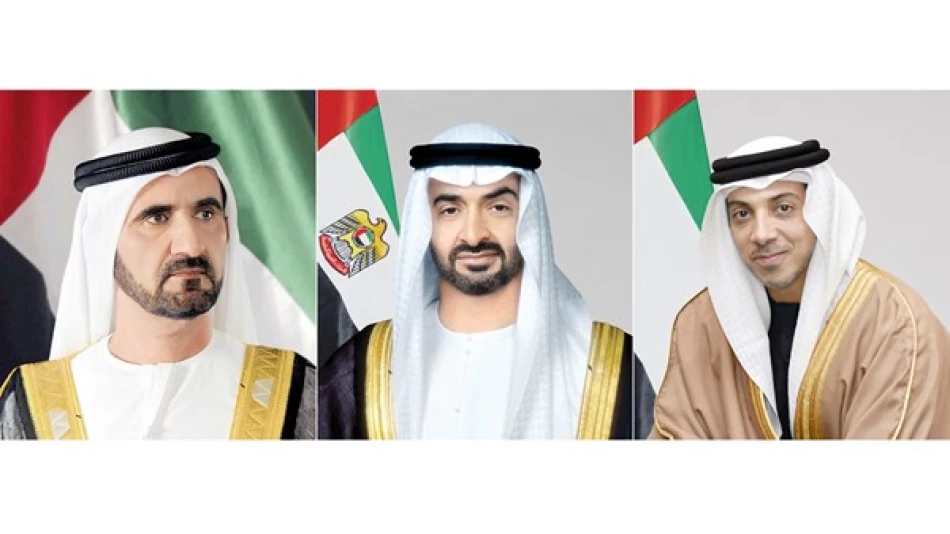
UAE Leaders Express Condolences to Saudi King on Passing of Prince Waleed bin Khalid
UAE Leadership Extends Condolences to Saudi Arabia Following Royal Family Loss
The United Arab Emirates' top leadership has sent formal condolences to Saudi Arabia's King Salman bin Abdulaziz Al Saud following the death of Prince Waleed bin Khaled bin Talal bin Abdulaziz Al Saud, underscoring the deep diplomatic ties between the two Gulf powerhouses at a time of regional transformation.
High-Level Diplomatic Outreach
UAE President Sheikh Mohammed bin Zayed Al Nahyan led the condolence efforts, sending a personal telegram to King Salman expressing his sincere sympathies over the loss of the Saudi royal family member. The gesture reflects the protocol-driven nature of Gulf diplomacy, where personal relationships between ruling families often shape broader policy directions.
Vice President and Prime Minister Sheikh Mohammed bin Rashid Al Maktoum, who also serves as Dubai's ruler, joined the diplomatic outreach alongside Deputy Prime Minister Sheikh Mansour bin Zayed Al Nahyan. The coordinated response from the UAE's highest offices signals the importance placed on maintaining strong Saudi-Emirati relations.
Strategic Significance Beyond Protocol
While royal condolences might appear ceremonial, such exchanges carry substantial weight in Gulf politics. The UAE and Saudi Arabia have emerged as the region's most influential economic and political partnership, driving initiatives from the NEOM megacity project to coordinated oil policy through OPEC+.
Economic Partnership at Stake
The two nations have increasingly aligned their economic visions, with bilateral trade exceeding $50 billion annually. Their cooperation spans everything from renewable energy projects to financial market integration, making diplomatic courtesy essential for business continuity.
For investors and multinational corporations operating across both markets, the strength of UAE-Saudi relations directly impacts regulatory harmonization, cross-border investment flows, and regional stability premiums in risk assessments.
Regional Leadership Dynamics
The swift diplomatic response also reflects how Gulf monarchies navigate an increasingly complex regional landscape. With Iran's influence, ongoing conflicts in Yemen and Syria, and shifting global energy dynamics, maintaining unity among Gulf Cooperation Council members has become more critical than ever.
Unlike the diplomatic rifts that characterized the region during the 2017-2021 Qatar blockade, current UAE-Saudi coordination suggests a more mature approach to regional challenges. This stability benefits not only political outcomes but also creates predictable conditions for international business and investment.
Implications for Global Partners
The seamless diplomatic coordination between Abu Dhabi and Riyadh sends positive signals to international partners, from Washington to Beijing, who rely on Gulf stability for energy security and strategic partnerships. Strong UAE-Saudi ties reduce the risk of intra-Gulf competition undermining broader regional initiatives or international agreements.
Most Viewed News

 Layla Al Mansoori
Layla Al Mansoori






